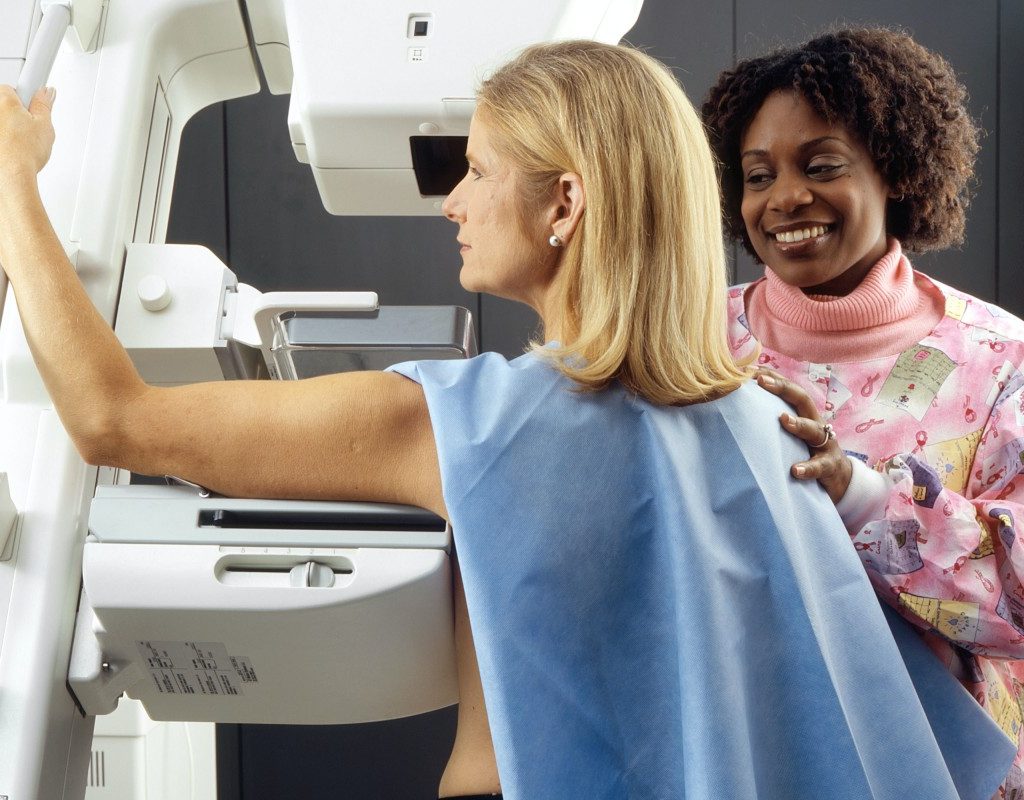You’ve probably heard about the misinformation on the Internet regarding COVID-19, but falsehoods surrounding other health conditions exist as well. Breast cancer myths are also prevalent, and they can cause unnecessary fear and guilt.
One thing that’s true: Breast cancer isn’t rare. The CDC reports it’s the second-most common cancer in women in the U.S., trailing some skin cancers, and Black women are more susceptible to dying from the disease. About 13 percent of women (1 in 8) will develop breast cancer during their lifetime, the American Cancer Society says. These facts make it all the more important to dispel the myths surrounding the disease. People need to know the truth to take appropriate steps to prevent and treat breast cancer. We want to help. Here are five things that don’t cause breast cancer.

Does wearing a bra boost my breast cancer risk?
Truth: Bras become a part of many people’s wardrobes when they hit puberty. Could they inadvertently be increasing their risk of breast cancer? The experts say no. In fact, a 2014 study concluded there was no increased risk of breast cancer in bra-wearing, post-menopausal women.
There’s also a claim that wearing a bra with an underwire can up your chances of getting breast cancer by impeding the lymph flow, resulting in toxic substances accumulating in the area. No evidence supports this theory.
I put deodorant on every day. Is that dangerous?
Truth: Putting on antiperspirant is another part of many people’s daily routines. However, rumors have persisted throughout the years that they increase the risk of breast cancer. The thought is that toxic ingredients from the deodorant can seep into the bloodstream and cause harm. Part of the issue, people believe, is that deodorant is applied on the armpits, giving the ingredients easier access to the breasts. The short answer is that this is a myth, according to the National Cancer Institute. Some research has specifically called out aluminum as a potentially toxic ingredient within deodorants, claiming it can get absorbed into the skin and impact hormones. However, a 2014 review did not find a link.

I’m scared to get a mammogram because I heard it can cause breast cancer. Does it?
Truth: The American Cancer Society suggests women begin annual mammograms to screen for breast cancer around their 40th birthday. Doctors sometimes recommend earlier screening for women with a higher risk of developing breast cancer, such as a family history of the disease. Because the screening involves radiation exposure, some people fear it can actually cause breast cancer and not just check for it. Experts share that the amount of radiation you’re exposed to during a mammogram is low, and there has never been a single known case of someone getting breast cancer from the screening. The benefits of mammograms (peace of mind or early detection of breast cancer) far outweigh the risks.
I have implants. Did I increase my risk of developing breast cancer when I got them?
Truth: In 2020, the Food and Drug Administration flagged a potential link between breast implants and anapestic large cell lymphoma, ALCL, a rare cancer in the immune system. This link has yet to be confirmed, but it’s essential to differentiate between this disease and breast cancer. They are not the same thing. When it comes to breast cancer and implants, there’s not a known link. One review of 10 studies confirmed this. Also, there’s another rumor that women with implants cannot get mammograms. They can — and should.
Can putting your phone in your bra really increase your risk of breast cancer?
Truth: This claim is likely out there because cell phones do emit low levels of radiation. However, there’s really no research to definitively conclude that putting your phone in your bra ups your chances of getting breast cancer. That said, you may be better off putting it in your bag or a pocket if only to avoid awkward moments when you need to take a call in public.
Breast cancer is common, and it’s crucial people have accurate information about the preventative measures they can take. Unfortunately, breast cancer myths, such as wearing antiperspirant and a bra, are prevalent. These are two things that don’t cause breast cancer. Carrying a phone in your bra or having implants don’t either, according to current data. What’s more, getting screened for breast cancer with a mammogram is vital and will not increase your risk of developing the disease. Women should begin regular mammograms at the age of 40, as early detection can be key in helping patients achieve the best possible outcomes. Though there’s no way to prevent breast cancer completely, exercise, limiting alcohol intake, and not smoking are other fact-based ways to reduce your risk.
BlissMark provides information regarding health, wellness, and beauty. The information within this article is not intended to be medical advice. Before starting any diet or exercise routine, consult your physician. If you don’t have a primary care physician, the United States Health & Human Services department has a free online tool that can help you locate a clinic in your area. We are not medical professionals, have not verified or vetted any programs, and in no way intend our content to be anything more than informative and inspiring.



